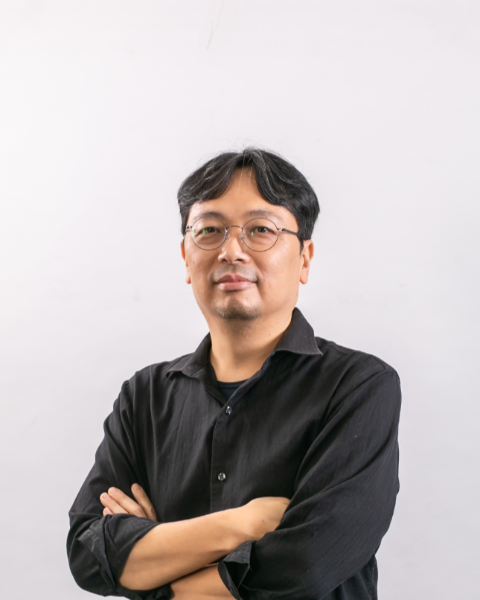SEMICON West
Smart Manufacturing
Smart Manufacturing Session 2: Front-End Manufacturing - Optimizing Yield with AI
Keynote: Leveraging Generative AI for Advanced Equipment Data Analytics in Semiconductor Manufacturing
Tuesday, July 9, 2024
2:05pm - 2:30pm PDT
Location: North Hall, Expo Floor, Smart Manufacturing Pavilion Stage

Jae Yong J. Park
VP of Technology
Samsung
수원시, Kyonggi-do, Republic of Korea
Speaker (SMfG)(s)
The semiconductor manufacturing industry is at the forefront of a significant transformation, driven by the escalating complexity of production processes and the critical need for enhanced efficiency and automation. Central to this shift is the vision of establishing fully autonomous fabrication facilities, underpinned by the advanced capabilities of Artificial Intelligence (AI) and Machine Learning (ML). These technologies are not merely supportive tools but are foundational to the future landscape of semiconductor manufacturing.
This paper delves into the essential role of Generative AI in refining semiconductor manufacturing process control, particularly highlighting its application in AI-driven automatic recipe creation and the facilitation of interactive etching processes through in-situ monitoring and control. As the industry progresses towards the goal of autonomous fabs, the incorporation of Generative AI into process control is identified as a key driver, offering unparalleled precision, adaptability, and efficiency.
We explore the transformative influence of AI and ML in semiconductor manufacturing, showcasing how these technologies empower real-time process optimization, predictive maintenance, and yield improvement. The advent of Generative AI, with its capability to produce synthetic data and construct complex models, marks a new epoch of innovation. This includes the autonomous generation of process recipes that adjust to varying inputs and conditions, and the implementation of interactive etching processes that allow for real-time modifications based on in-situ data, ensuring optimal performance and quality.
Integrating into this landscape, the concept of time series foundation models represents a novel avenue of exploration. These models, adept at analyzing sequential data, offer profound insights into equipment behavior and process dynamics over time. By leveraging such models, the industry can anticipate and preemptively address potential issues, optimize process parameters, and innovate new process recipes with enhanced foresight and precision.
Through case studies and current implementations, this paper underscores the tangible benefits that Generative AI and advanced time series analysis bring to process control in semiconductor manufacturing. It illustrates how AI-driven systems are already augmenting the precision and efficiency of fabrication processes, setting the stage for the transition to fully autonomous operations.
Furthermore, the paper outlines the necessary future directions for the integration of Generative AI and time series foundation models into semiconductor manufacturing. It emphasizes the need for scalable AI solutions, the development of standardized frameworks for AI integration. By addressing these areas, the semiconductor industry can fully leverage the potential of Generative AI and sophisticated time series analysis, paving the way for the autonomous fabs of the future.
This exploration not only highlights the current state and potential of AI in semiconductor process control but also sets the agenda for future research and development efforts. It underscores the critical role of Generative AI and time series foundation models in driving the semiconductor industry towards the ultimate goal of achieving fully autonomous fabrication facilities.
This paper delves into the essential role of Generative AI in refining semiconductor manufacturing process control, particularly highlighting its application in AI-driven automatic recipe creation and the facilitation of interactive etching processes through in-situ monitoring and control. As the industry progresses towards the goal of autonomous fabs, the incorporation of Generative AI into process control is identified as a key driver, offering unparalleled precision, adaptability, and efficiency.
We explore the transformative influence of AI and ML in semiconductor manufacturing, showcasing how these technologies empower real-time process optimization, predictive maintenance, and yield improvement. The advent of Generative AI, with its capability to produce synthetic data and construct complex models, marks a new epoch of innovation. This includes the autonomous generation of process recipes that adjust to varying inputs and conditions, and the implementation of interactive etching processes that allow for real-time modifications based on in-situ data, ensuring optimal performance and quality.
Integrating into this landscape, the concept of time series foundation models represents a novel avenue of exploration. These models, adept at analyzing sequential data, offer profound insights into equipment behavior and process dynamics over time. By leveraging such models, the industry can anticipate and preemptively address potential issues, optimize process parameters, and innovate new process recipes with enhanced foresight and precision.
Through case studies and current implementations, this paper underscores the tangible benefits that Generative AI and advanced time series analysis bring to process control in semiconductor manufacturing. It illustrates how AI-driven systems are already augmenting the precision and efficiency of fabrication processes, setting the stage for the transition to fully autonomous operations.
Furthermore, the paper outlines the necessary future directions for the integration of Generative AI and time series foundation models into semiconductor manufacturing. It emphasizes the need for scalable AI solutions, the development of standardized frameworks for AI integration. By addressing these areas, the semiconductor industry can fully leverage the potential of Generative AI and sophisticated time series analysis, paving the way for the autonomous fabs of the future.
This exploration not only highlights the current state and potential of AI in semiconductor process control but also sets the agenda for future research and development efforts. It underscores the critical role of Generative AI and time series foundation models in driving the semiconductor industry towards the ultimate goal of achieving fully autonomous fabrication facilities.
